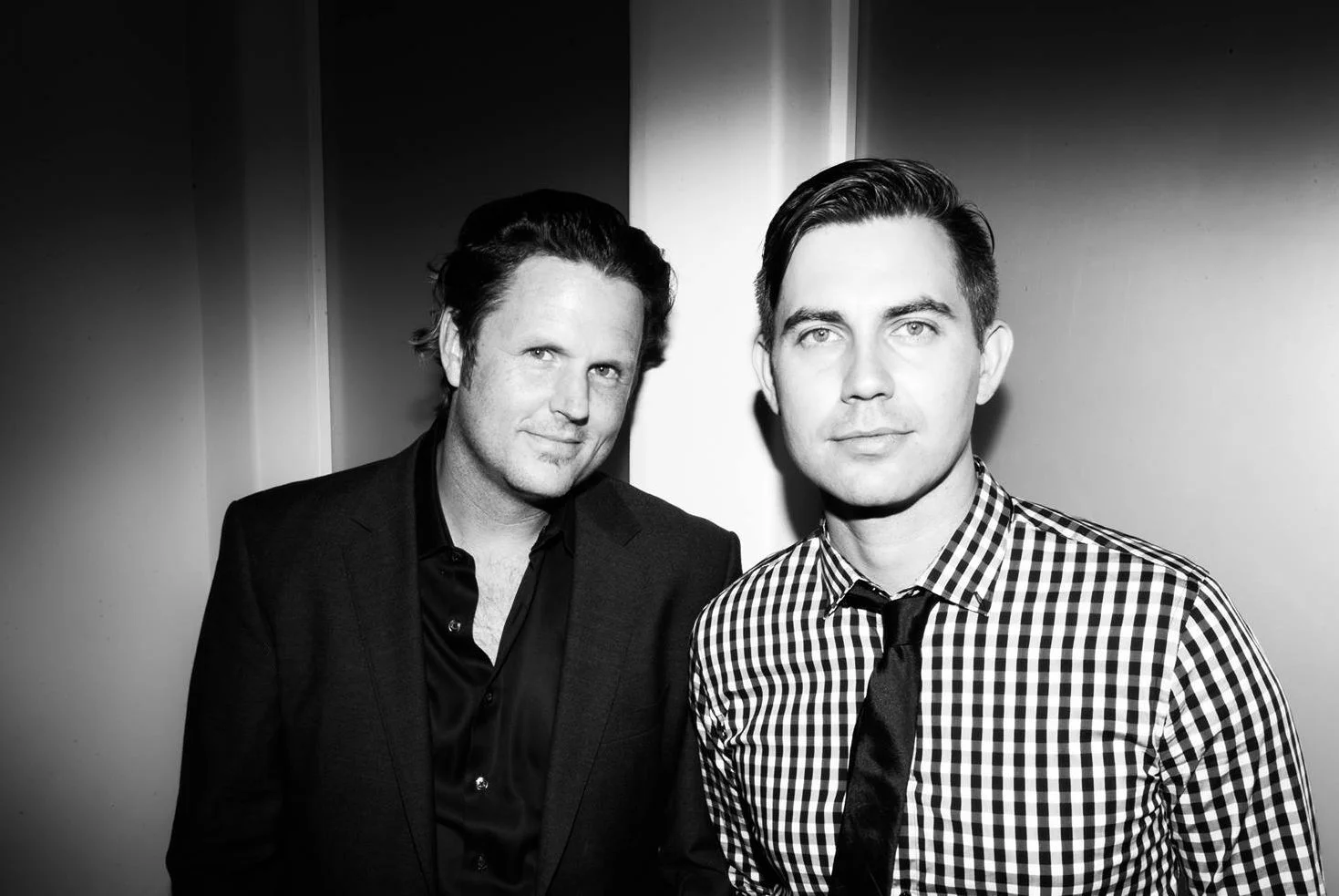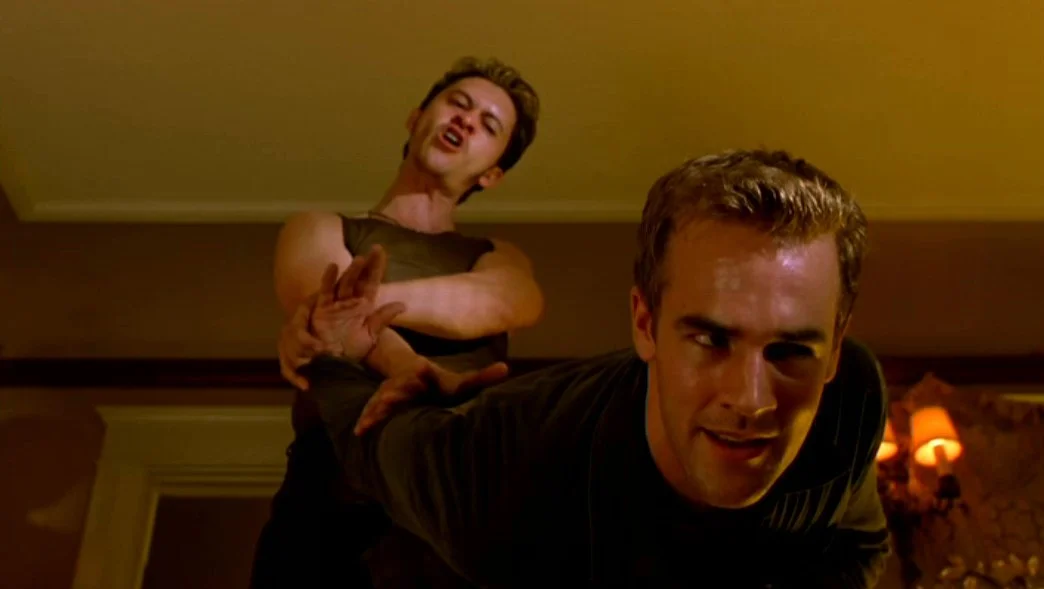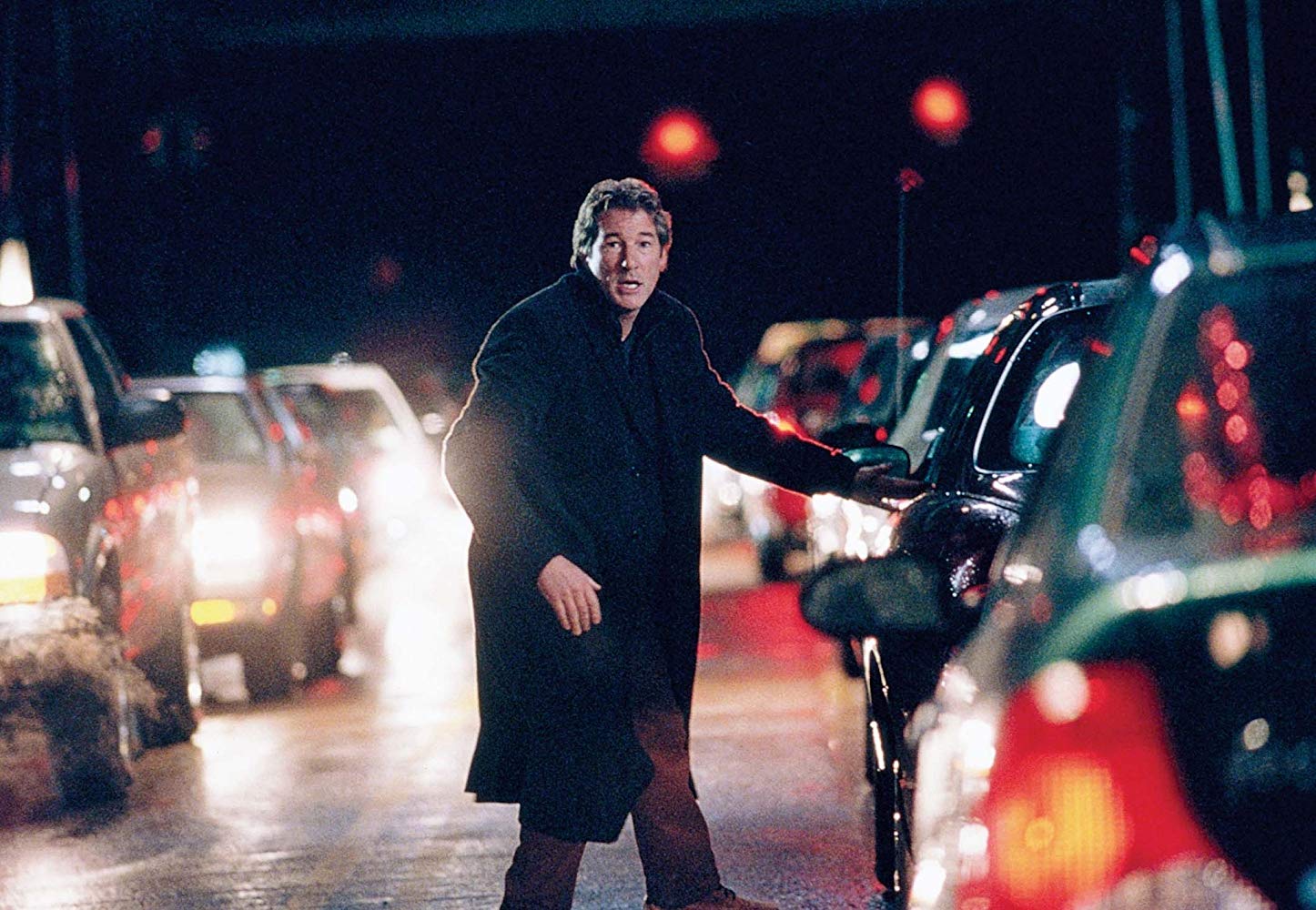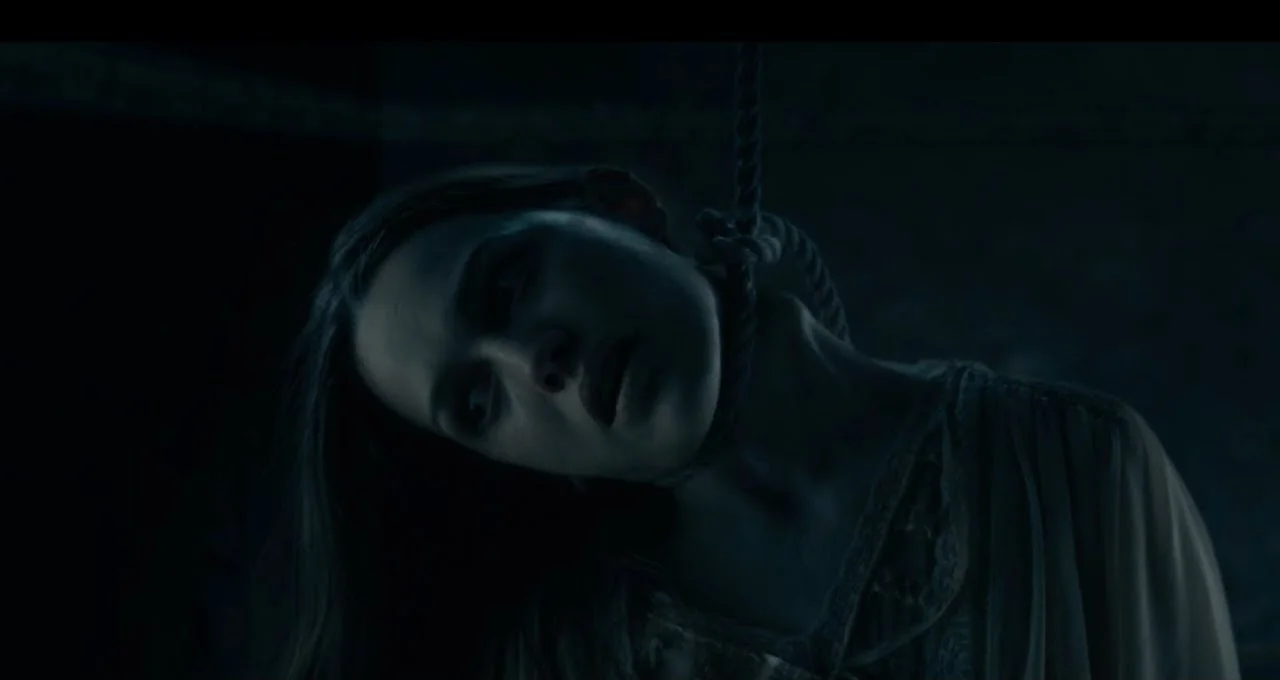The Newton Brothers
Taylor Stewart and Andy Grush, best known as The Newton Brothers, are the prominent composing duo, widely admired for their poignant musical atmospheres. Thriving on the power of minimalism, The Newton Brothers have attained a high art for articulating the subliminal and suspending the disbelief of their audience with enigmatic sonic contraptions and ethereality. Since the late 2000s, the synergistic pair have unified their musical gifts to support a broad constellation of films and television shows including The Haunting of Hill House, Into The Dark, Gerald’s Game, Hush, Extinction, Oculus, Ouija: Origin of Evil, The Bye Bye Man, Before I Wake, The Runner, Life of Crime, Detachment, Falling Water, and Escape Plan: Hades. Most recently, the composers have reunited with repeat collaborator, Mike Flanagan to score an adaptation of Stephen King’s Doctor Sleep, a prequel to The Shining, slated for release this November. In our intriguing exchange, The Newton Brothers detail their experiments with space, time, and restraint to produce a score evoking both unfathomable tragedy and subtle elegance for The Haunting of Hill House.
Courtesy of Subjects
Can you elaborate on your respective musical backgrounds? Who were the primary thought leaders, mentors, and icons that shaped your formative years?
Andy: We both had quite an assortment of backgrounds. I started classical piano lessons and recitals at four, then added guitar around nine, then sax, then bass, then drums, etc. All of those instruments were informed by a variety of bands, composers and artists from Chopin, Bach, and Sondheim early on, into Nine Inch Nails, Elton John, Testament, and The Cure.
Taylor: I received piano and vocal lessons from my mom at an early age. She was my main mentor growing up. She was an opera singer and a brilliant piano player. My grandfather played violin in the symphony, and my father played guitar for many notable artists. You could say music was always around, from the classical side to the rock side. In my teens, I dived into electronic music, playing in bands, and scoring short films from college students, which paved the way into scoring feature films. For a short bit, I worked at Remote Control as Hans Zimmer’s main assistant, which I’ll always be grateful for, as it fed my hunger to find more ways to blend technology into music.
What provided the impetus for your film music passions, and what were your first opportunities to demonstrate your artistic perspectives in the realm of professional composing?
The Newton Brothers: For both of us, our childhood days of film sparked the fire. John Williams was a big part of that first engagement which opened our minds to the whole world of film scoring. Star Wars, Raiders of the Lost Ark, E.T. and Superman are all heroic, emotional, heartfelt, adventurous, and awe-inspiring. For two kids playing music, hearing these things elevates the music you’re already listening to.
Andy: My first album was Billy Joel’s 52nd Street on vinyl in 1978 when I was 4 — I still have that record! I remember seeing Star Wars in a theater around the same time, or shortly before I got that record. My dad took my brother, and I remember it clearly because we got there late during the trash recycle bin scene. We then stayed for the film to start again and caught the beginning of the film. Leaving that theater, I was blown away by the music. For me, it made the film so big!! I mean, spaceships for a four-year-old will help the “bigness,” but the music filled out a 3-D sensation within me that I’ll never forget. It didn’t make any kind of “I want to do that” statement at that point — it was more just me coming home and sitting at the piano to pick out the theme. It wasn’t until days later when my uncle, who was an incredible pianist, came over and showed me the melody with bass notes. He also went on to tell me to appreciate all of my classical training, but he also hipped me to lead sheets. He would write out chords and tell me to just listen for the melody. The combination of that with the years of recitals and classical training was an awesome base for what would later turn into a passion for film and music.
The first opportunities of this craft came by way of student films here in Los Angeles. Taylor worked for Hans [Zimmer] at Remote Control, and I ran around posting notes on boards at LMU and USC and ended up scoring a baker’s dozen of student films. After a few student films, I started working at tomandandy in Santa Monica. While I was there, we scored Rules of Attraction [directed by Roger Avery] and Mothman Prophecies [directed by Mark Pellington]. Both of those films were incredible learning benchmarks, while Taylor was getting his experience and real-world skills over at Remote Control.
Can you tell us the origin story of The Newton Brothers? How did you first meet and begin to work harmoniously? Considering that you are not blood relatives, what is the inspiration behind your moniker?
The Newton Brothers: At the time, we just wanted to write under one name. We’re like brothers in so many ways; it just seemed to make sense. The name itself was inspired by the mathematician Isaac Newton. We have always been fascinated by how music and sound are really just math, and various pitches can be charted in a color spectrum. We also wanted the name to be something that sounded like we could do Legends of the Fall 2 or Fight Club 2. Not that we need a sequel for either of those great films, but the idea was there for us with the name when coming up with ideas.
The Haunting of Hill House is a critically acclaimed episodic reimagining of Shirley Jackson’s iconic 1959 gothic fiction and psychological horror novel. Can you describe the experiments that took place to establish the musical vernacular of the series? What influences underpinned your approach to the foreboding and heartbreaking main title theme sequence?
The Newton Brothers: We wanted to capture the essence of the original Hill House theme, which, at the time, was scary, gothic, and slightly romantic. We wrote several versions, pulling from those inspirations in a more contemporary way. There’s also a hidden message in the main titles that some fans have already noticed. It’s very rudimentary, but the seven big hits that happen are for the family members. As an interesting side note to Mike Flanagan’s attention to detail, he turned to us one day when the main theme was playing and said, “Are those seven hits for the family?”. We didn’t really do it to be noticed. We just thought it would be a subtle nuance that would be fun and he picked up on it.
A lot of the experimentation we did early on involved coming up with a simple melody that told a story with just a single bass note on the bottom. We wanted to be very stripped down in the early stages to avoid music production dictating tones. That particularly helped us craft the main title. For the main title, we wanted something that pulled you into the world with momentum, darkness, and chaos while also telling the story. We wrote several main title ideas, and the one that is in the show is actually the first one we wrote. The piano banging away 8th note chords underneath the orchestration is the first take of the piano that we tracked.
Taylor: I was playing those chords while humming melodic ideas and wanted something that told a simple story without getting too complex, but also something that evolved and then devolved. The first two sections repeat the same melody, but just in a different key. I am obsessed with chord modulations in songs — this one is a real basic minor 3rd jump. The second section evolves a bit more, the way our lives do naturally, then we drop into the seven percussive hits representing the family. Those hits all happen in the same place, but they’re individual and all stand on their own, just as each member of the family stands on their own. Then to end the piece, we really wanted to end with a musical statement on insanity.
The composer, Franz Schubert characterized all music chords at one point and about F minor, he said it was the chord that expresses “deep depression, funereal lament, groans of misery and longing for the grave.” He is not the only composer to talk about F minor in this dark way. Many composers in history have talked about the effect this chord has on the psyche. We crafted the beginning of the main title in such a way that we would end up in F minor having come from someplace else tonally. Additionally, we walk down with a melody twice, and each time it ends on a different note. The final note giving you a feeling like a resolve is going to happen with the minor 7th, when, in fact, it does not resolve anywhere, but fades to Mike’s title card and each episode begins.
Lastly, in the production of this piece, it was important to have chaos and darkness surrounding it everywhere. There are lightly violent string articulations scattered throughout the piece which took a lot of time to craft. It involved getting into audio surgery of samples to glue and cut things together mixed with our mild ability to play the cello sprinkled on top. Then, our orchestrator Mark Graham was wonderful to figure out what all of that was and to get a version translated for the band to perform. We ended up with a great hybrid of pre-records and wonderfully talented players playing that chaos with the melody.
Traversing various stages of their lives, the narrative examines the disturbing family dynamics of the Crains and the harrowing circumstances they weather in connection to Hill House. What musical devices did you select to represent the passage of time and the historical connection between the siblings in your thematic material?
The Newton Brothers: It was a combination of arrangement, instrumentation, and performance. Episode four was Luke’s episode, which involved him in the city a lot dealing with the residue of his childhood trauma. In this episode, we relied much more on synths and treated live performances to make the episode feel the most gritty and current. Tempo was probably the most widely used device in our score. There’s a comfort in consistency, and tempo often provides that consistency. Life is not consistent for anyone; the Crains included, so early on in the writing process, we did everything we could to avoid strict tempos.
Every single cue was recorded specifically for each scene to accommodate this idea. It made it a bit of a challenge in tracking sessions to recreate the feel and vibe we recorded in the mockups. And in a lot of cues, the freestyle piano takes we recorded while watching the picture down would become the “tempo” for the other instruments, as opposed to a click dictating the tempo. This subtle inconsistency of varied human tempo — rubato is the musical term for this — really helped us support the story and allowed a feeling of discomfort, raw emotion, or fear.
We also employed this technique with large percussion. We were wondering if Mike was going to fire us for an early version of a cue we sent over that had varied low percussion hits over a three-minute span. Our pitch was that the space created tension, and that was based on a suggestion Mike had given us in one of our first creative meetings. It ended up working great.
Toward the end of the series, you hear those low percussion hits spread out in a way that might sound random, but they were all quite specific. Time was another element that we had to address in all of this, and the piano was something that we all agreed was going to help us a lot. While the piano is only 300 years old within our lifetime, it’s a “classic” sound. A lot of the early mockups for Haunting [of Hill House] were much more involved, and as we started seeing picture and getting feedback from Mike, we all started understanding that the stories didn’t need or want so much music — being simple and classic played in our favor. Stripped down piano bridged the gap of time and with the exception of the synths and treated audio in episode four as mentioned above, we relied heavily on piano, strings, and a few woodwinds to maintain a classic feel.
What were your methods to blur the edges of reality and amplify the sinister atmosphere of America’s most notorious haunted house?
The Newton Brothers: Dissonance and space were our friends in this arena. The incredible cast, crew and set provided a tone that when left alone already gave a presence to the house that made you feel uncomfortable in the most unfamiliar way. For us, the impact of music was amplified incredibly when it was dished out sparingly. A lot of that was under Mike’s direction. We also went to every dub stage playback because we were moving so quickly that we were often over-writing to make sure we didn’t miss something and then on the dub stage, we’d peel back score that felt like it was too much.
Seeing and hearing score in context is so necessary when fine tuning, especially with a story so steeped in emotion, trauma, and fear. It’s easy to get in the way of that, so pulling back when viewing all at once was hugely helpful. Then the added element of subtle dissonance can go a long way. Blatant clusters can sometimes be exhausting to listen to, even in the context of score, but we would try to introduce dissonance with strict attention to the dynamics within the execution so they would just creep in on your psyche without asking for attention.
Your treatment for The Haunting of Hill House creates such a powerful psychological weave in the viewer’s consciousness even in its most austere moments. How did you initially envision the function of silence and space in the overall structure of your score?
The Newton Brothers: It’s funny because early on, when we had only read the scripts, the story felt so involved that our themes were very involved. We had these big orchestral mockups of our themes that we spent a lot of time crafting. Before we had seen picture, we sent these pieces to Mike, and he said the themes were great, but they were too much for what they saw through the lens as they were shooting and suggested we simplify them.
We went through a few rounds of simplifying before we then started to see some of the cuts and understood that we need to take the themes down to their roots to be out of the way with the beauty and fear that was being captured on camera. Mike’s final approval came on a batch of cues that we sent that we thought we had a pretty good chance of being fired over. They were naked and empty with piles of space between notes. In some of the versions, the space was so much that you could barely make out the themes, but these ended up working really well.
Prior to The Haunting of Hill House, you have enjoyed numerous collaborations with Mike Flanagan on other visceral projects including Oculus, Ouija: Origin of Evil, Gerald’s Game, Hush, and Before I Wake. What are the commonalities across your taste profiles that inform your work together? How has your joint approach to realizing these unsettling narratives evolved over time?
Taylor: I think that from the beginning, we had an emotional connection to Mike through music. He’s an excellent piano player himself, and we share a very common sentiment in score and song. Funny enough, a few years before we were working on Haunting [of Hill House], I had just gone to a Gregory Alan Isakov concert with my sister. She and I love seeing him when he’s in L.A. Mike was talking with us about music at a BBQ one night, and it turned out that Mike also loved Gregory. Much to the dismay of our significant others, on our drive home that night, we played Gregory at 11 all the way home.
There’s a connection that music has with people. You see it when you go to a concert. There’s a sense at a show of “Oh, I think I could be friends with all of these people who took time to buy tickets and come enjoy this band, composer, artist.” The same applies in the editing room. There’s a connection through music, and I think we share that with Mike and Trevor Macy as well.
In recent years, the field of film and television scoring has been impacted by the meteoric rise of streaming platforms and relentless demand for premier content. As composers on a hit Netflix series, what are the benefits and privileges that have accrued to you through this affiliation? How has the landscape changed for both of you since breaking into this industry?
The Newton Brothers: This new rise in streaming content has really opened the doors for character development. You are able to take the time to get to know characters, which inevitably draws you closer to them, and allows us as composers to spend more time with thematic content. The themes always existed even before streaming, but at some point, main title sequences in films went from one to two minutes of “These are the themes of the film,” to something more subdued which made it more difficult to have a stated theme. With the rise of streaming, you’re often given six to twelve episodes to develop themes as the characters grow and begin to show you their cards.
Next up, you will be taking on Doctor Sleep, a cinematic adaptation of Stephen King’s sequel to The Shining starring Ewan McGregor as the psychic alcoholic protagonist. Is there anything you can share with us about the musical direction you will be exploring for this film?
The Newton Brothers: This film will be like nothing we’ve done so far. The depth of the story and the connection to the original story as well as the film are deep. We’ve spent the last nine months crafting a whole world of things we’re very excited about. Mike, Trevor, and the whole Doctor Sleep team have done an incredible job with this next one. We’re very excited for the world to see it!
Interviewer | Ruby Gartenberg
Research, Editing, Copy, Layout | Ruby Gartenberg
Extending gratitude to Taylor Stewart, Andy Grush, and White Bear PR.



























